- Online Programs
- MBA Programs
-
-
- Master of Business Administration Online
- MBA with a Concentration in Accounting Analytics Online
- MBA with a Concentration in Finance Online
- MBA with a Concentration in Healthcare Administration Online
- MBA with a Concentration in Human Resources Management Online
- MBA with a Concentration in Marketing Online
- MBA with a Concentration in Project Management Online
-
-
- Graduate Certificates
- View All Programs
- MBA Programs
- Getting Started
- Resources
- Apply Now
Master of Business Administration with a Concentration in Finance online

Gain a thorough understanding of financial management, financial market analysis, and behavioral finance with this accelerated online MBA in Finance from the University of Northern Colorado. Prepare for roles in multinational organizations, commercial banks, and venture capital firms. Finish in as little as 12 months.
Home » Online Programs » Business » MBA » Master of Business Administration with a Concentration in Finance
Program Overview
Explore Our Accelerated Online MBA in Finance - No GMAT Required
$26,262* Total Tuition
12 months Program Duration
36 Credit Hours
*Includes tuition and fees.
Expand your knowledge of financial industry fundamentals and prepare to join the ranks of market-moving investment bankers, asset managers and equity researchers. Our AACSB-accredited, online MBA in Finance is designed with a mix of conceptual and applied activities to leverage your professional experience and ensure career-relevant learning.
Learn how to use financial modeling to prepare and position investor pitches, gain hands-on experience using data analysis techniques to interpret financial data, and develop your ability to build and manage a portfolio and conduct risk-return analysis for financial and corporate investments. Coursework covers topics included in the Chartered Financial Analyst (CFA) exam. Study online while you continue to work and finish your finance MBA in as few as 12 months.
Online MBA in Finance Learning Outcomes:
- How to analyze and interpret financial disclosure data using data analysis techniques
- How to prepare and position investor pitches using financial modeling
- How to apply risk-return analysis in the decisions to buy or sell assets
- How to build and manage a portfolio and monitor it over time
- How to analyze and interpret financial disclosure data using data analysis techniques
- How to prepare and position investor pitches using financial modeling
- How to apply risk-return analysis in the decisions to buy or sell assets
- How to build and manage a portfolio and monitor it over time
Careers in Finance for MBA Graduates:
- General or Operations Manager
- Financial Manager
- Financial or Investment Analyst
- Personal Financial Advisor
- Securities, Commodities, or Financial Services Sales Agent
- General or Operations Manager
- Financial Manager
- Financial or Investment Analyst
- Personal Financial Advisor
- Securities, Commodities, or Financial Services Sales Agent
UNC's Kenneth W. Monfort College of Business has earned prestigious accounting and business accreditation from AACSB International and is the first and only business program to receive the Malcolm Baldrige National Quality Award from the Office of the President of the United States.
Tuition
Pay-By-The-Course Tuition for Our Online MBA in Finance
Tuition for the MBA in Finance online degree program is the same for in-state and out-of-state students. For the MBA in Finance core courses, there is a $48 fee per course with the exception of MBA 656; this course has a $78 fee. These fees are included in the Per Program tuition listed below.
| Program | Per Credit Hour | Per Course | Per Program |
|---|---|---|---|
| MBA – Finance | $718 | $2,154 | $26,262* |
Ranked as the #10 affordable online MBA with no GMAT requirement by Discover Business, 2024
Calendar
Flexible Online Courses and Multiple Start Dates
With multiple start dates each year, the MBA in Finance online program is structured with the flexibility and convenience that working professionals require. Choose the start date that best suits your schedule.
| Session | Program Start Date | Application Deadline | Document Deadline | Registration Deadline | Payment Deadline |
|---|---|---|---|---|---|
| Spring 1 | 1/12/26 | 12/29/25 | 1/5/26 | 1/14/26 | 1/15/26 |
| Spring 2 | 3/9/26 | 2/23/26 | 3/2/26 | 3/11/26 | 3/12/26 |
| Summer 1 | 5/18/26 | 5/4/26 | 5/11/26 | 5/20/26 | 5/21/26 |
| Summer 2 | 6/29/26 | 6/15/26 | 6/22/26 | 7/1/26 | 7/2/26 |
| Fall 1 | 8/24/26 | 8/10/26 | 8/17/26 | 8/26/26 | 8/27/26 |
| Fall 2 | 10/19/26 | 10/5/26 | 10/12/26 | 10/21/26 | 10/22/26 |
Have questions or need more information about our online programs?
Ready to take the rewarding path toward earning your degree online?
Admissions
Apply for Our AACSB-Accredited Online MBA in Finance
UNC’s finance MBA online program has specific requirements that you must meet to apply. Please review the requirements below.
The requirements include:
- Bachelor’s degree from a regionally accredited college or university
- No work experience required with 3.0 GPA
- No GMAT required with 2.5 GPA if all admission guidelines are met
MBA Online Admission Requirements
To satisfy the requirements for admission:
Earned a bachelor's degree from a regionally accredited college or university. Applicants who have earned a higher degree from an accredited institution without receiving a bachelor's degree (i.e. Pharm D) may be eligible to apply without the conferral of a bachelor's degree.
If you are still completing your bachelor's degree at the time you apply, admission will be based on your current cumulative GPA, and you will need to resubmit your official transcript (showing your conferred degree and final GPA) during your first semester. If your final GPA fell below 3.00, you will be given additional requirements as defined by the academic program that must be met within one calendar year to remain enrolled at UNC.
- At least a 3.0 GPA in the most recent degree received with no work experience. A 2.75 to 2.99 GPA in the most recent degree received with at least three years of professional work experience. A 2.5 to 2.74 GPA in the most recent degree received with at least six years of professional work experience.
- No GMAT is required; however, applicants who fall outside admission and work experience guidelines will be reviewed by the MBA program director to determine if a passing GMAT score may be required to qualify for admission to the MBA program. These applicants will be notified by the MBA program with the result of that review.
- Waived Graduate School application fee for all current UNC students and alumni. Application fee waiver applies only to the UNC Graduate School application. Any students applying to programs with a Centralized Application Service (CAS) application will still need to pay for the CAS application.
Transcripts
Request one official transcript from any accredited college or university where a bachelor's degree or higher was earned (if you have earned multiple degrees, bachelor's level or higher, an official transcript is required from each college or university where a degree was conferred).
If you received a degree from UNC, you do not need to request a transcript from UNC.
The Graduate School & International Admission Office reserves the right to request that applicants provide official transcripts from other colleges or universities as needed.
Exceptions:
- If an applicant intends to use Veteran's Education Benefits, an official transcript from all colleges or universities attended will be required in order to maintain compliance with Veteran's Affairs policies.
Official transcripts from U.S. institutions should be sent via mail directly from the educational institution in an unopened, sealed envelope or through an electronically secure digital program from the issuing institution. Mailed transcripts should be sent to:
Office of AdmissionsCampus Commons
1051 22nd St
Campus Box 10
Greeley, CO 80639
Electronic transcripts from U.S. institutions should be sent directly from the educational institution to: [email protected].
The Graduate School and International Admission does not accept email, scanned or PDF transcripts directly from applicants. All official transcripts, submitted as part of the application process, are retained by UNC and not returned to applicants or admitted students.
UNC retains submitted transcripts, from institutions other than UNC, for admitted students for up to five years after graduation or date of last attendance at UNC. Transcripts provided by applicants who were not admitted, denied admissions or did not complete their application are destroyed after one year. The Graduate School will make every attempt to use previously-submitted transcripts if they are within these timeframes. However, if the Graduate School cannot locate previously submitted transcripts, the transcripts fall outside the timeframes listed above, or they are considered illegible, applicants must provide new transcripts.
Applicants with academic credentials from outside the U.S. will need to follow the requirements for submission of foreign transcripts. Click on the Transcripts tab for information about international transcripts.
Have a question? Call us at 844-750-8885.
Courses
Earn an Online MBA in Finance in 12 Months
The MBA in Finance online curriculum is comprised of 12 courses (36 credit hours) including 24 credit hours of core courses, nine credit hours of emphasis courses, and three credit hours of elective courses.
Regardless of academic background, you are required to take three free foundation modules—Foundations of Economics, Foundations of Finance and Foundations of Accounting—on a pass-fail basis.
MBA programs consist of rigorous graduate courses that require ample dedicated time to work on assignments, and learn, retain, and apply complicated concepts. While we recommend taking one course per session, taking more than two courses in a single session is not permitted.
Request more information
Submit the form below, and a representative will contact you to answer any questions!
Begin application process
Start your application today!
